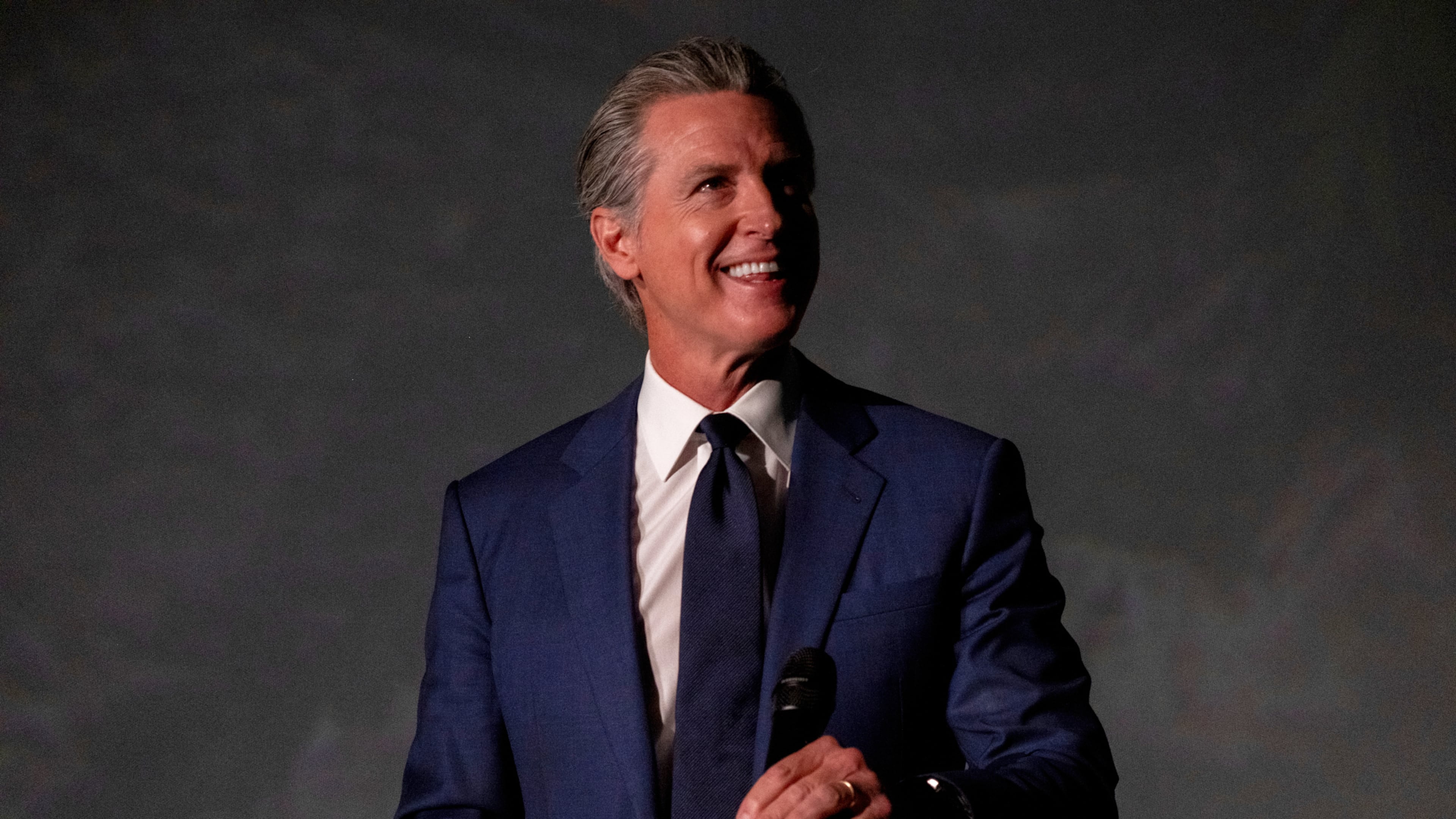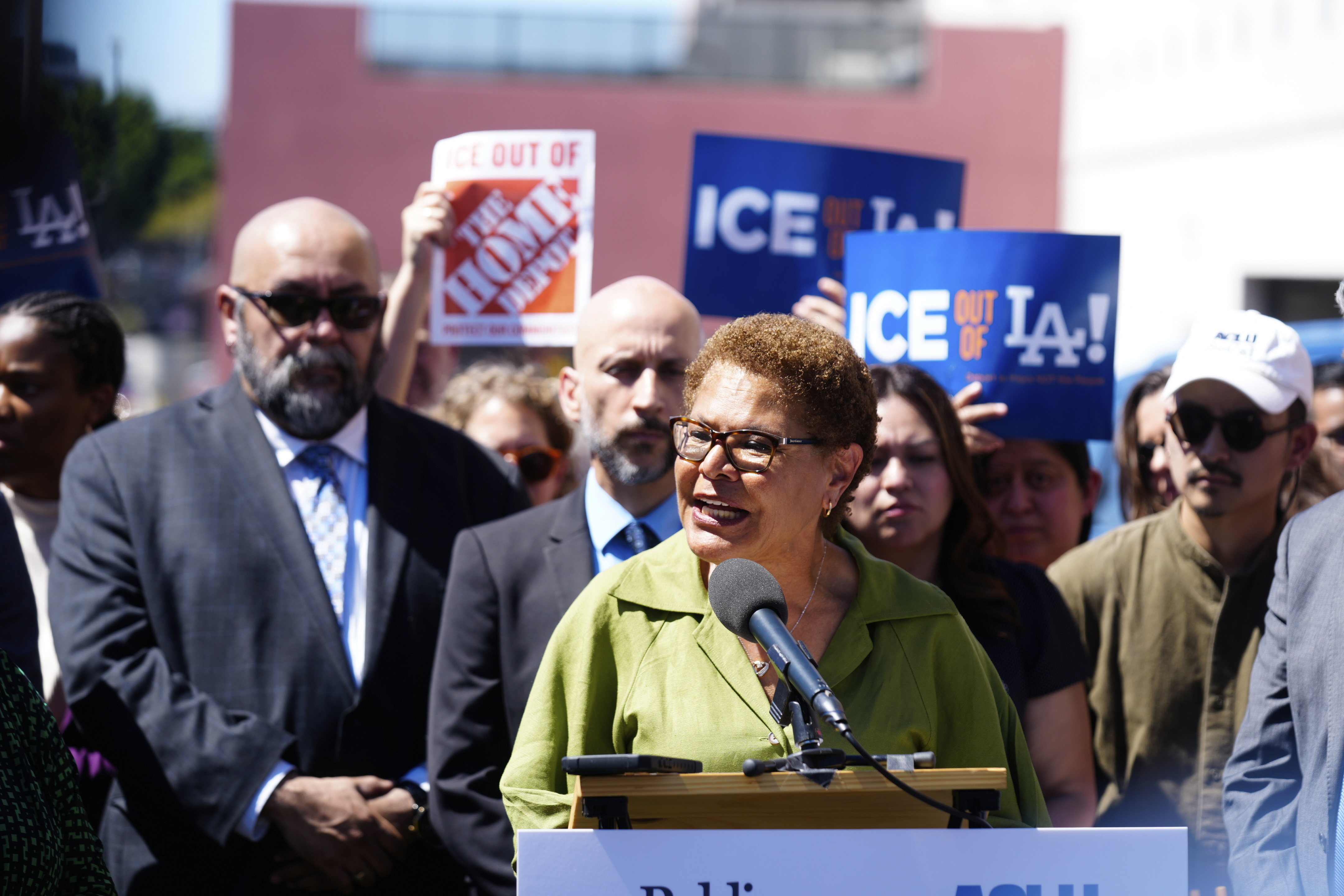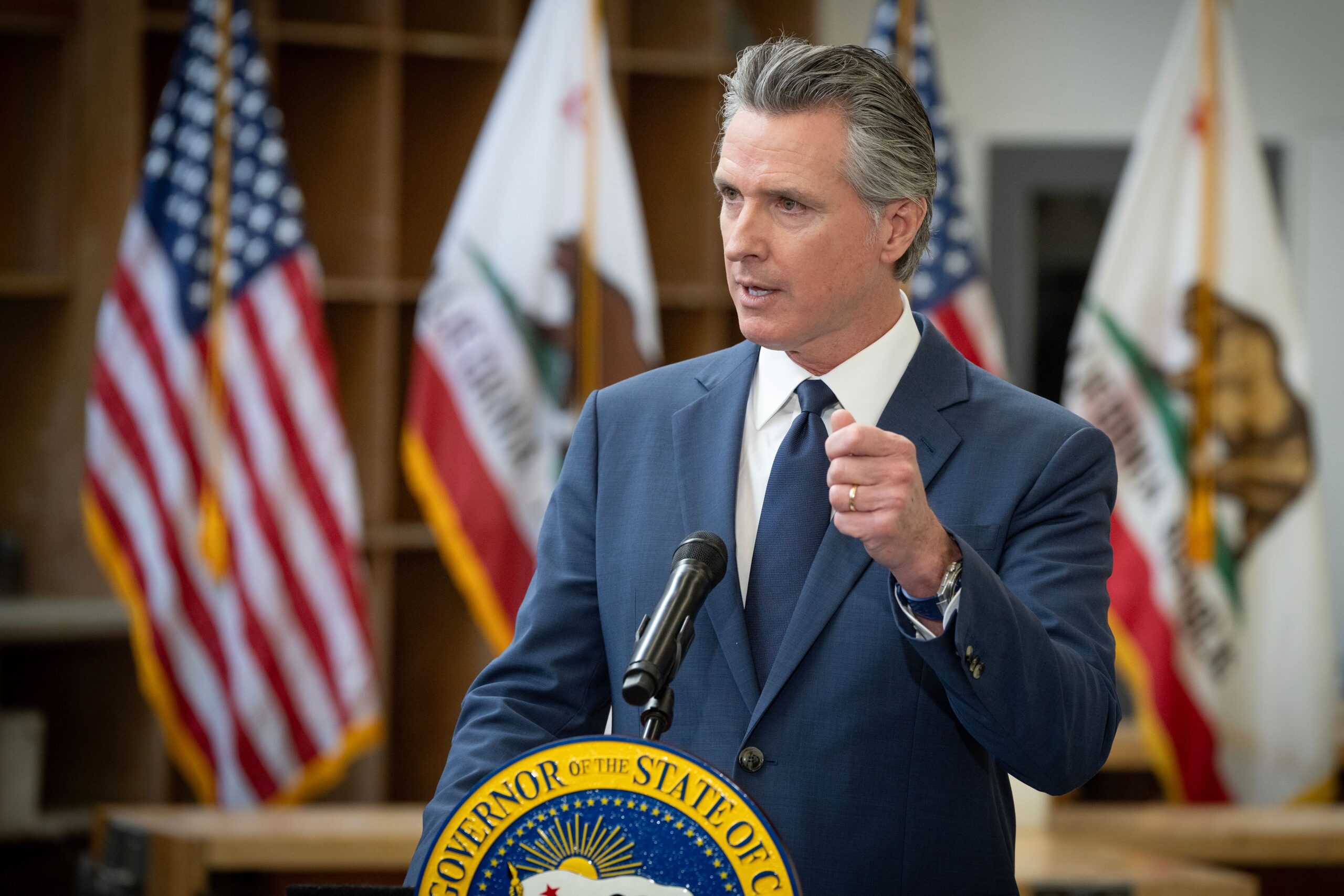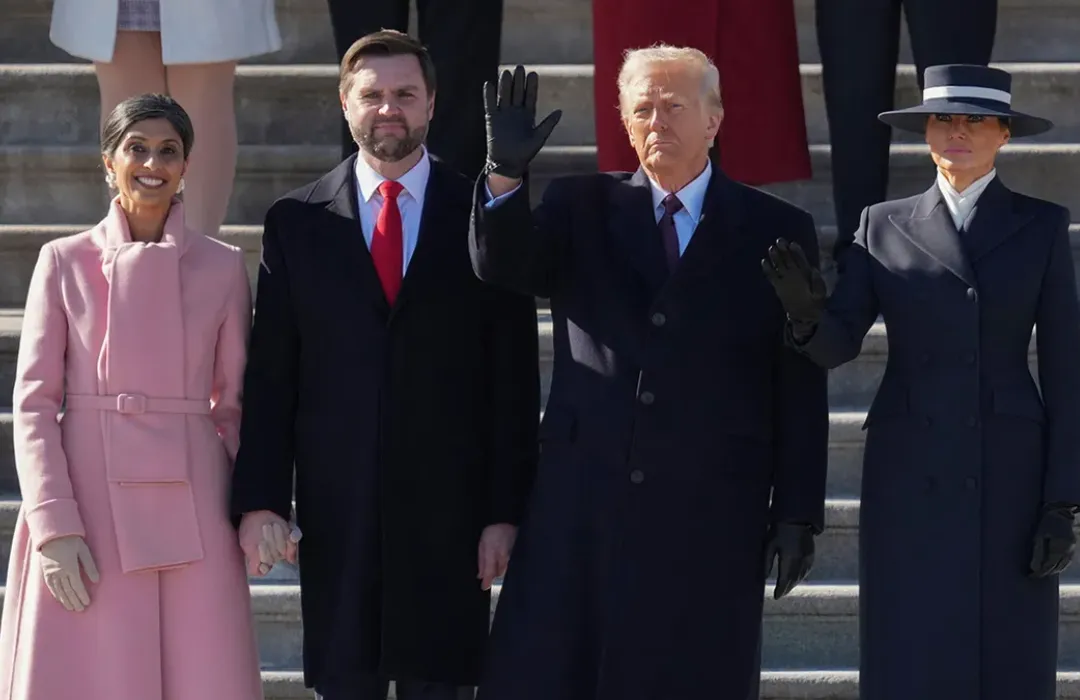The United States Supreme Court issued two major rulings this week that dealt a sharp blow to progressive climate policy in California and simultaneously bolstered federal immigration enforcement.
Both decisions underscore the Court’s current direction, handing victories to energy producers, immigration officials, and ultimately the Trump administration.
In the first case, a 7-2 decision authored by Justice Brett Kavanaugh, the Court cleared the way for energy producers to proceed with their lawsuit against the Environmental Protection Agency, challenging California’s sweeping electric vehicle mandate.
The state has attempted to enforce requirements that would force automakers to transition almost entirely to electric vehicles by 2035, part of Governor Gavin Newsom’s plan to achieve carbon neutrality.
In the second case, a narrower 6-3 split, the justices sided with U.S. Immigration and Customs Enforcement, overturning a district court’s attempt to restrict the agency’s “roving” operations in Los Angeles.
The ruling restores ICE’s ability to conduct broad sweeps based on what officials describe as “common sense” criteria for identifying suspected illegal immigrants.
Together, the decisions represent a double defeat for Newsom’s climate agenda and for progressive critics of federal immigration enforcement, marking a turning point in the national battles over energy regulation and border security.
At the heart of the first ruling was California’s bid to require automakers to reduce greenhouse gas emissions across their fleets and to manufacture a certain percentage of electric vehicles.

This mandate, first submitted for EPA approval in 2012, has been central to the state’s ambition to lead the nation on climate policy.
Justice Kavanaugh, writing for the majority, rejected the notion that energy producers had no standing to challenge the EPA’s approval of California’s plan. He wrote that businesses affected by burdensome mandates cannot be locked out of court under claims that they are unaffected bystanders.
“The government generally may not target a business or industry through stringent and allegedly unlawful regulation, and then evade the resulting lawsuits by claiming that the targets of its regulation should be locked out of court,” Kavanaugh stated.
He also noted that the EPA has shifted its legal arguments over time, undermining its credibility. “EPA has repeatedly altered its legal position on whether the Clean Air Act authorizes California regulations targeting greenhouse gas emissions from new motor vehicles,” he wrote.
The ruling not only permits the lawsuit to move forward but also signals skepticism about the legality of California’s mandate itself. It is widely seen as a green light for energy producers to continue challenging the state’s attempt to regulate vehicle emissions beyond federal standards.
Chet Thompson, president and CEO of the American Fuel & Petrochemical Manufacturers, the trade group spearheading the lawsuit, hailed the ruling as a “major victory.”
“The Supreme Court put to rest any question about whether fuel manufacturers have a right to challenge unlawful electric vehicle mandates,” Thompson said.
“California’s EV mandates are unlawful and bad for our country. Congress did not give California special authority to regulate greenhouse gases, mandate electric vehicles or ban new gas car sales, all of which the state has attempted to do through its intentional misreading of statute.”

The decision represents the second time Governor Newsom’s climate policies have been thwarted at the nation’s highest court. Only weeks earlier, President Donald Trump had signed resolutions dismantling portions of California’s aggressive climate agenda.
Together, these setbacks are seen as damaging to Newsom’s national political brand, especially given speculation that he could be a presidential contender in 2028.
For conservatives, the case reinforces their argument that climate mandates amount to regulatory overreach. For progressives, the ruling is a stinging defeat that imperils efforts to transition to clean energy.
The Court’s second major decision involved immigration enforcement in Los Angeles. For years, ICE has conducted operations targeting undocumented immigrants in workplaces, neighborhoods, and public spaces.
A federal district judge had limited these practices, arguing that they relied on stereotypes such as speaking Spanish, appearing Latino, or gathering at day labor sites like bus stops or Home Depot parking lots.
Critics labeled these tactics unconstitutional “roving sweeps.” The district court restricted ICE from conducting raids under such broad criteria, a ruling that immigration officials said tied their hands.
The Trump administration petitioned the Supreme Court to intervene, and the justices agreed. In a 6-3 decision, the Court placed the district judge’s order on hold, siding with ICE.
Justice Kavanaugh again played a central role, writing separately that “it is appropriate to conduct brief interviews with individuals who meet several common sense criteria for being in the country illegally, including those who work in day labor or construction and do not speak English well or at all.”
The ruling drew a sharp dissent from the Court’s three liberal justices—Elena Kagan, Sonia Sotomayor, and Ketanji Brown Jackson. In their opinion, they warned of the dangers of racial profiling and constitutional overreach.
“We should not have to live in a country where the Government can seize anyone who looks Latino, speaks Spanish, and appears to work a low-wage job,” the dissent read. “Rather than stand idly by while our constitutional freedoms are lost, I dissent.”
Their language reflects the broader concern among progressives that the ruling empowers ICE to target vulnerable communities indiscriminately, undermining constitutional protections and deepening mistrust between immigrants and law enforcement.
The pair of rulings has far-reaching implications beyond California and Los Angeles. On energy policy, the Court has signaled a willingness to limit state authority when it comes to climate mandates, particularly where federal law is unclear.
On immigration, the Court has expanded ICE’s operational latitude, reinforcing federal enforcement power even in cities where local leaders have attempted to resist.
For Trump and his allies, the decisions are validation of their hardline stances on both issues. The victories allow them to claim momentum against what they describe as radical environmentalism and open-borders policies.
For Democrats, the rulings are setbacks that complicate efforts to project leadership on climate and immigrant rights.
Governor Gavin Newsom faces mounting political pressure as his signature climate initiatives face judicial defeat. His administration had framed the EV mandate as a cornerstone of California’s leadership in the fight against climate change.

By setting 2035 as the deadline for a transition to electric vehicles, he sought to establish California as a model for the nation.
But the Supreme Court’s ruling undercuts that ambition, raising doubts about the state’s legal authority and opening the door to continued litigation from industry groups. Critics are already pointing to the ruling as proof that Newsom’s policies are unrealistic and potentially unlawful.
This setback comes as speculation grows about Newsom’s future political aspirations. His efforts to brand California as a progressive beacon face new scrutiny in light of repeated defeats at the Supreme Court.
Meanwhile, the ruling on ICE operations has reignited debates over the role of local versus federal authority. Cities like Los Angeles have long resisted aggressive federal immigration enforcement, emphasizing sanctuary policies and local protections for immigrants. The district judge’s restrictions reflected this philosophy.
The Supreme Court’s reversal effectively reasserts federal primacy, giving ICE more freedom to operate even in jurisdictions that oppose its tactics.
Critics argue that this will heighten tensions between immigrant communities and law enforcement, while supporters insist it will strengthen national security and uphold the rule of law.
The dual rulings are certain to shape political debates heading into the next election cycle. For Republicans, the decisions bolster their claims that progressive policies—whether in climate or immigration—are out of step with law and common sense. Trump allies are already celebrating the rulings as validation of their agenda.
For Democrats, the defeats highlight the challenges of implementing bold progressive policies in the face of a conservative-leaning Supreme Court. Party leaders will likely use the rulings to rally their base, arguing that the Court is hostile to climate action and immigrant rights.
The Supreme Court’s decisions on California’s electric vehicle mandate and ICE enforcement mark significant victories for conservatives and major setbacks for progressive priorities.
By allowing energy producers to challenge California’s mandate, the Court cast doubt on the legality of one of the nation’s most ambitious climate policies.
By siding with ICE, the Court restored broad authority to conduct immigration sweeps, even over objections that the tactics amount to racial profiling.
Together, the rulings highlight the deep ideological divisions shaping American law and politics. They reflect a judiciary increasingly willing to check progressive policies, while affirming federal authority in immigration and casting skepticism on expansive climate regulations.
For California and Governor Gavin Newsom, the blow is severe. For ICE and the Trump administration, the victories reinforce their message of enforcement and restraint on what they call radical overreach.
As the country heads into another contentious election cycle, these rulings will resonate far beyond the courtroom, shaping the battles over climate, immigration, and the balance of power in American governance.






